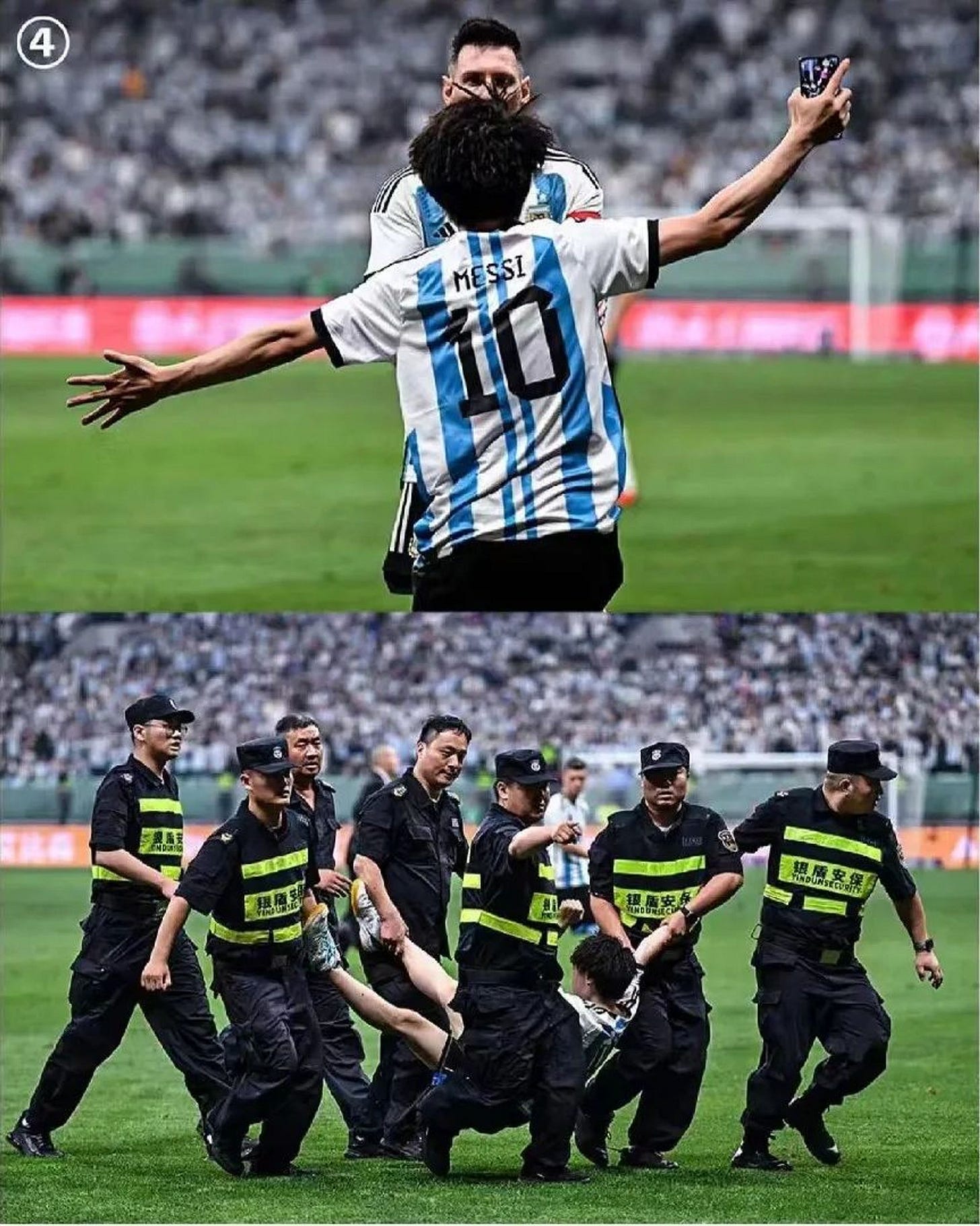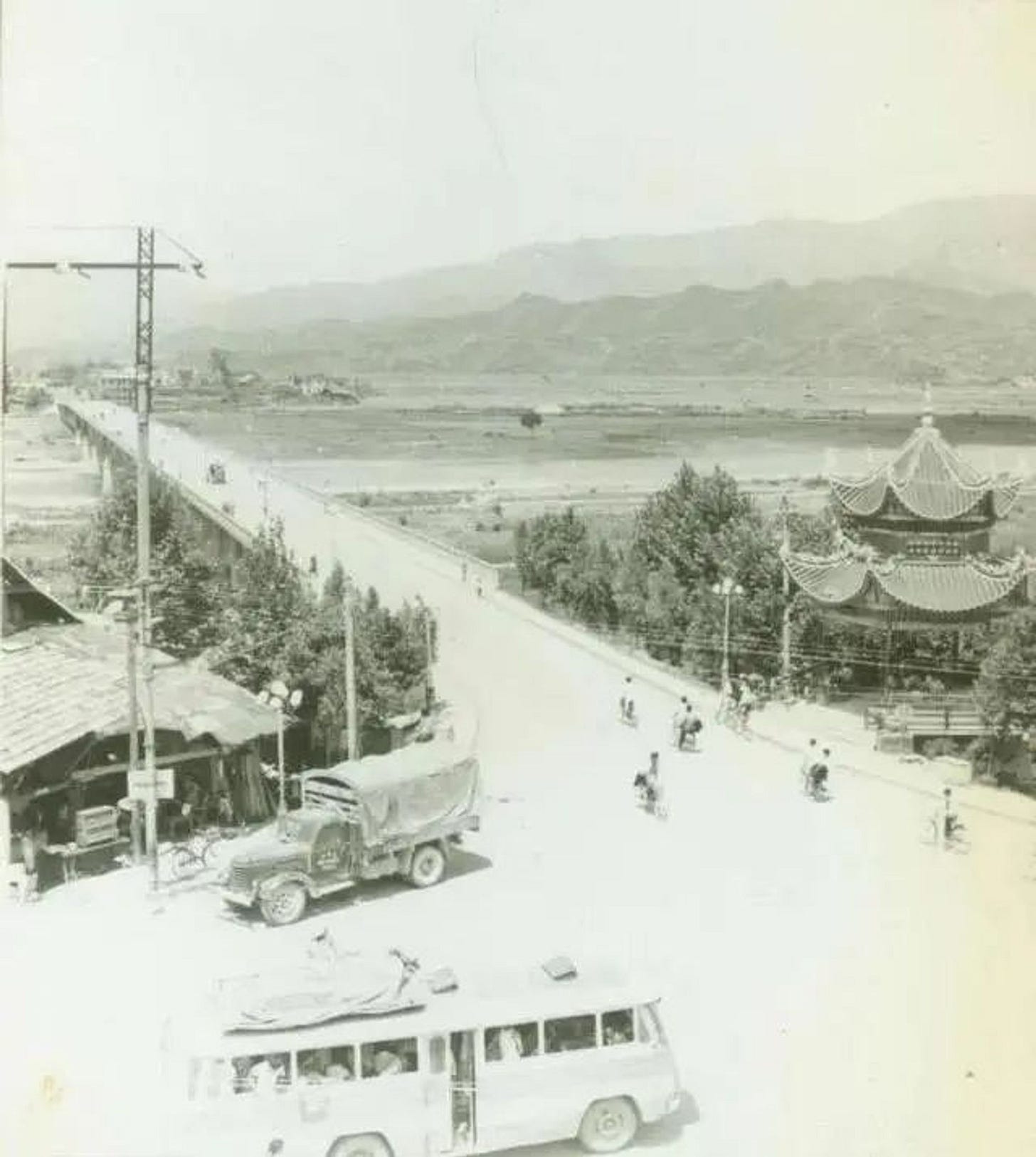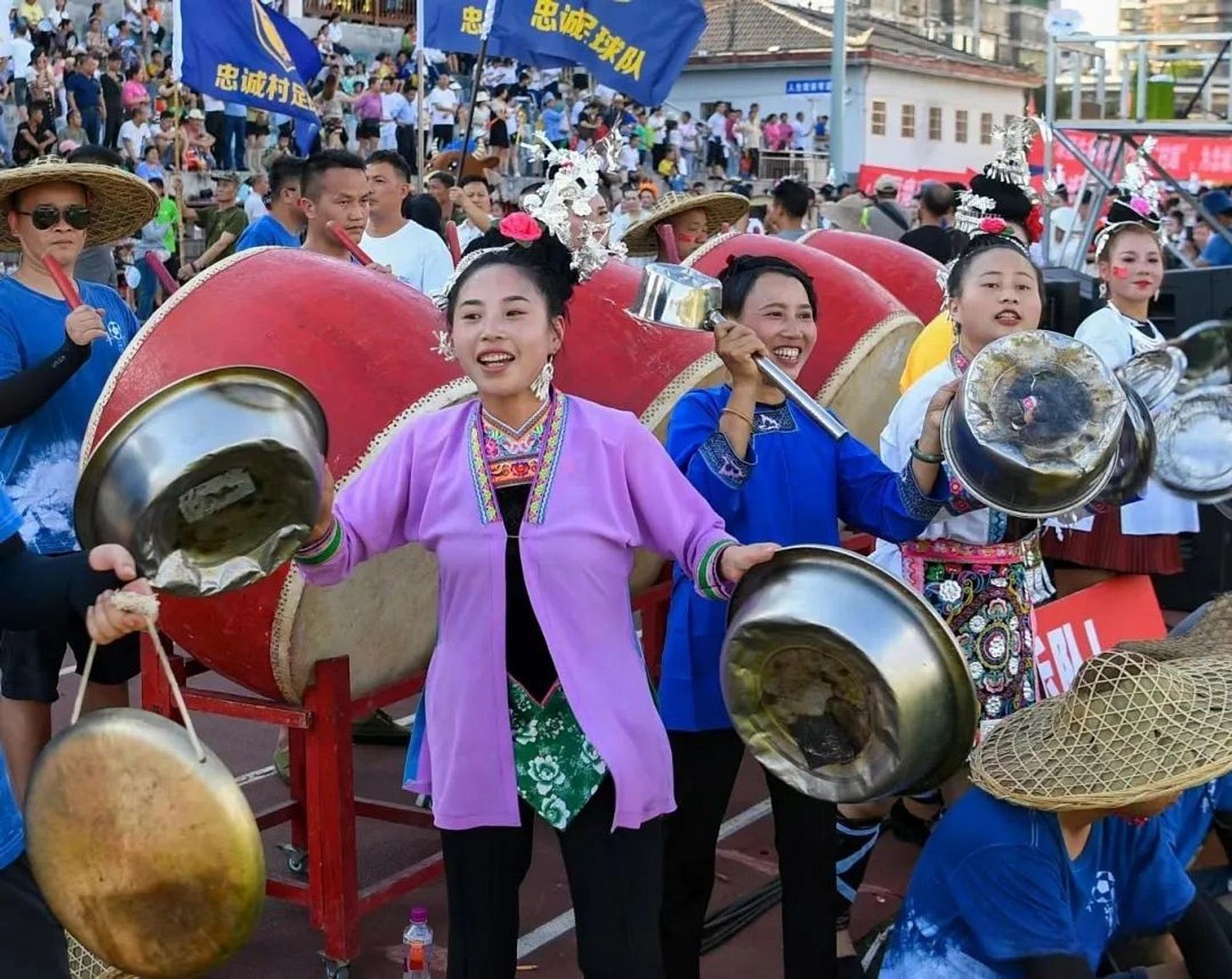China's Messi is on a construction site, and China's C Ronaldo is driving an excavator!
What does the village football craze tell about China’s economic future
Across the vast rural landscapes of China, Village Super Leagues, or 村超 Cun Chao in Chinese, are gathering momentum. The name "Cun Chao" (村超) is a combination of "Cun村" (village) and "Chao超" (super). These self-initiated, community-led matches are a testament to China's love for football and the lively spirit of its rural population. The passion for the sport resonates deeply within these small communities, turning regular games into festive displays of athletic skill and shared enthusiasm.
One question looms large for every Chinese – with a population of 1.4 billion, why hasn't China assembled an effective, cohesive 11-player team for international competition?
In this translated article, we invite you to explore captivating stories of individuals who, driven by their unwavering love for the sport, are keeping the football spirit alive in their rural local communities in the mountainous, historically underdeveloped province of Guizhou. Through personal tales of dedication to the sport, this examination of China's Village Super Leagues presents a new, hopeful side of the nation's relationship with 'the beautiful game'.
As usual, at the end of this newsletter, you will find our take on this phenomenon and what deeper implications this tells about China’s economic future.
In Village Super League, there are countless Chinese youths striving to become "the next Messi"
Author: 圳长; Translated by Baiguan
On the evening of June 15th, an Argentina-Australia football game was held at Beijing Workers' Stadium and Messi's appearance made this friendly match a highly anticipated game.
Among the 50,000 spectators on the stage, many wore Messi jerseys, cheered for him, and a young fan even jumped down from the stands to hug Messi. Messi did not disappoint, playing the full game and scoring a goal.
Meanwhile, at another football field located 2,000 kilometers away from Beijing, tens of thousands of spectators turned on their mobile phone flashlights and chanted, "Messi! Village Super League!" Their chants were not without meaning. In this scorching summer, within the world of Chinese football, besides Messi, the only thing that can drive Chinese fans into a frenzy is the Village Super League.
The Village Super League breaking out
In May of this year, Wei Yajun, a steel worker in Hainan, made a decision - to take leave and participate in a football match back home [Baiguan: his home is Rongjiang, Guizhou province].
Wei Yajun had been a fan of football since the third grade, playing with classmates after school and continuing until he graduated from junior high school. After graduating from junior high school, Wei Yajun went to work outside of his hometown and, although he did not have the opportunity to play football, he never forgot the joy of running on the field. In 2015, Wei Yajun began to play football again and, upon learning that his hometown was holding a football competition, he could not contain his desire to participate. His supervisor at the construction site, who was also from Rongjiang, Guizhou, where Wei Yajun is from, saw how much he wanted to play and supported him, but said, "You can take leave, but you have to bring back good results.
The team Wei Yajun is a part of is called Chejiang Er Village. The team is composed of individuals from various professions, including truck drivers, teachers, and street vendors. Prior to participating in the competition, each person in the village contributed 20 yuan as a team fund.
The team captain, Shi Shihua, is one of the key players, showcasing remarkable skills and accuracy in shooting. In the first match, he even scored a Cristiano Ronaldo-esque lofted free kick. In a post-match interview, he candidly stated, "We are aiming for the championship in this competition."
Despite his brilliant performance, another player on the team stole the spotlight on the field. In a 5-0 victory over Pingyong Village, the young player wearing jersey number 12 scored an astonishing hat trick, delivering an exceptional display of skill.

The Village Super League, officially known as the Rongjiang (Sanbao Dong Village) and Mei Rural Football Super League, earned the nickname "村超" (Cun Chao) from internet users, drawing inspiration from the English Premier League (英超) and the Chinese Super League (中超). This name was chosen because the league embodies a truly authentic and grassroots spirit.
No one expected that a completely grassroots and spontaneously organized rural league would be just as thrilling as professional matches.
Since the league started on May 13th, the players have repeatedly ignited the field with great goals, including various technical moves that are rarely seen in professional games, such as the back-heel shot, the scissor kick, and the Robben-style cut-in.

All players participating in the competition are local villagers. On days when they are not playing football, they are butchers, excavator drivers, teachers, civil servants...Apart from the players, other members of the competition, both on and off the field, also come from various professions. The main referee of the competition is a restaurant owner, the first assistant is a primary school principal, and the commentator is a bank employee. The entire competition does not charge admission, and anyone can come to watch.
The 20 participating teams in the Village Super League are divided into two groups. From Friday to Sunday, there is a round-robin competition each week and the top four teams from each group advance to the quarterfinals. This grouping rule significantly extends the duration of the competition, with the grand final taking place on July 29th.

In recent weeks, every match of the Village Super League has drawn tens of thousands of spectators, with the peak attendance reaching around 50,000 during the meticulously organized "Super Saturday" evenings. Latecomers have no choice but to buy ladders to watch from the outskirts of the field.
Before the start of the matches, villagers representing each village team enter the field dressed in traditional ethnic costumes, carrying local specialties on their shoulders, playing the Lusheng [Baiguan: a type of Chinese wind instrument], and dancing.
During halftime, cheerleading squads perform traditional songs and Lusheng dances in the ethnic attire of the Dong and Miao minorities. Children rush onto the field to kick the ball around, and some villagers share local delicacies in the audience stands: rolled rice noodles, grilled fish, roasted fragrant pork, beef jerky, ice jelly, sticky rice, raw fish, beef head meat, sugar cake, sticky rice cakes, sesame candy, black rice porridge, pickled raw food..."
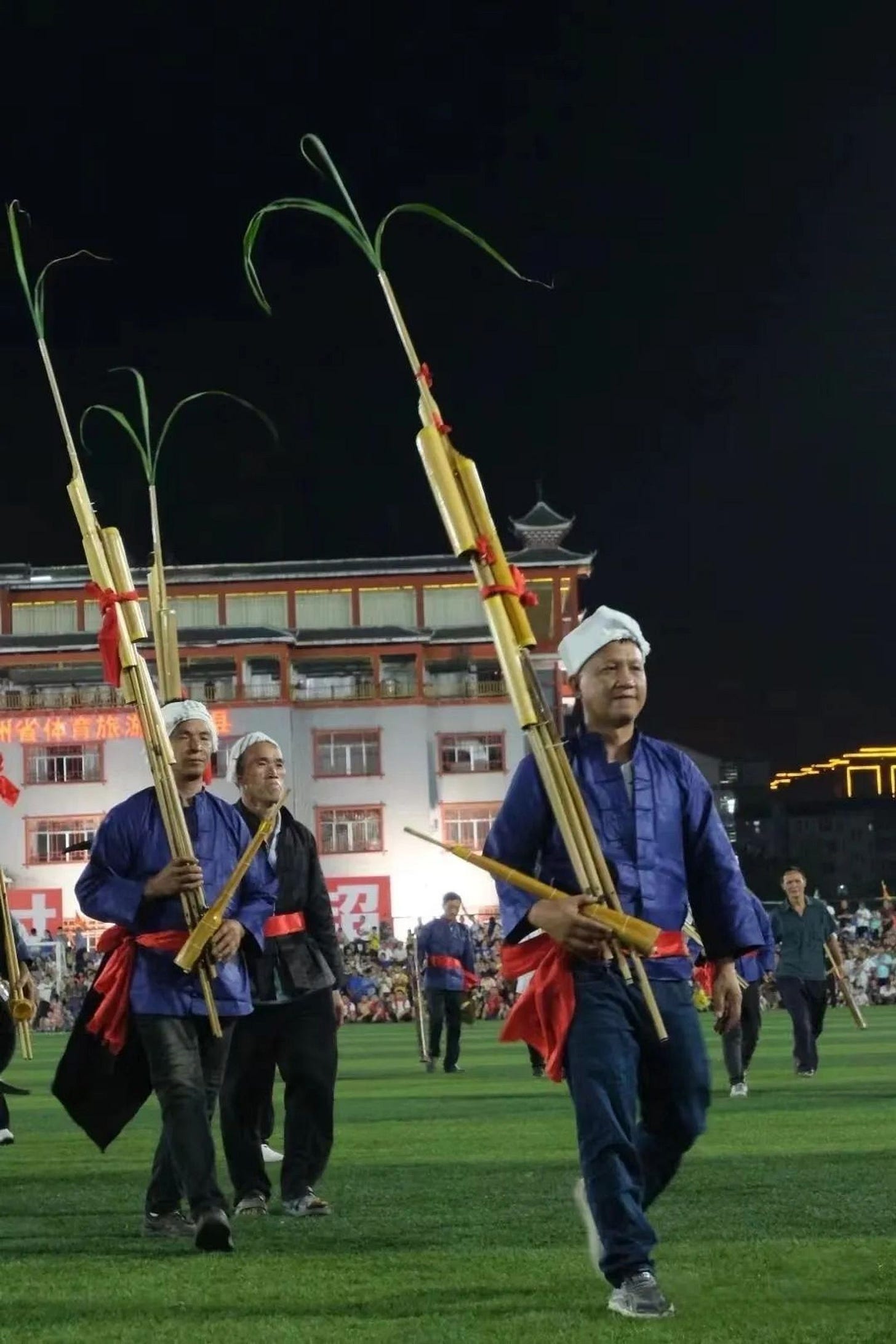
For local spectators, the Village Super League is more like a grand national festival than a football match. Some dance along with the cheerleaders, while others bang on their own basins to cheer on the players. Even a 94-year-old grandmother in a wheelchair cheers on the players. The atmosphere is so lively that even Han Qiaosheng, a famous football commentator, exclaimed, "This is the first time that I've seen such a fiery, down-to-earth, and lively scene!”
The "Guizhou Village Super League" is gaining increasing popularity online. Within two weeks, content related to the Village Super League has hit the national hotlist on Douyin. The topic "Guizhou Village Super League" amassed over 100 million views within just three days of its creation. According to Douyin data as of the morning of June 11, 2023, other Village Super League-related topics have generated more than 10 billion views nationwide. [Baiguan: some parts revised for clarity]
As the Village Super League continues to break out and gain popularity, football fans from all over the country are beginning to flock to Guizhou, with some even driving for over ten hours, just to experience the atmosphere on-site.
[Baiguan: In addition to its online influence, the Village Super League also attracts tourists to visit Rongjiang County in Guizhou, where the league is hosted. According to data published by Ctrip, the largest online travel agency platform in China, during the Dragon Boat Festival holiday this June, Rongjiang County attracted a large number of tourists.
Local hotel bookings increased by over 11 times compared to the same period last year, and some hotels have already been fully booked for consecutive weekends. The down-to-earth on-site atmosphere, local villagers welcoming guests into their own homes, and enthusiastic folk performances all contribute to creating a lively and immersive experience. This genuine sense of hospitality, where visitors feel at home and no longer feel like tourists, is a major reason for their relaxation and enjoyment.
Simultaneously, the Village Super League brings more possibilities for surrounding tourism. On the Ctrip platform, holiday bookings for vacation products in the Qiandongnan Prefecture (where Rongjiang County is located) grew by over 150% compared to last year. Tourists are attracted to the local cultural heritage, including the Dong ethnic group's grand songs, intangible cultural heritage batik dyeing, and communal feasts. These experiences allow visitors to embrace the beauty of the pristine ecology and immerse themselves in the local customs and traditions. ]
Nationwide participation in Rongjiang football
On June 18th, Chejiang Er Cun played against Koudai Village in a crucial match that would determine which team would advance from the group stage.
During the day, Tai Wenyong wore his football jersey and skillfully operated his farm equipment, hoping to finish his work early to prepare for the match in the evening. For him, playing football has been the purest form of happiness since childhood. Aside from herding cattle and chopping firewood, he and his friends played football barefoot on the sandy banks of the river from morning until night.
Until today, modern football has been rooted in Rongjiang for more than 80 years

According to the Rongjiang County Chronicle, in the 1940s, due to war reasons, Guangxi University moved south to Rongjiang, and the students brought football games into the county.
In the 1950s, football became popular in Rongjiang Middle School, and various football teams in Rongjiang became frequent visitors to state-level competitions. Every time the team returned from a game with honors, the people of the county would spontaneously welcome them. If the county held a football event, the entire county would be empty, with people cheering on the sidelines for the team. In that era without color televisions and football broadcasts, ordinary villagers like Mao Tou, Gao Jiayu, and Xia Xiaosong [Baiguan: names of the local players] were the Ronaldos and Maradonas in the hearts of the locals. There is even a folk saying: "If you want to find a job without worry, you must learn to play football."
Outside the stadium, the villagers played football on the flat but bumpy grass beside the river in the county town. Later, a piece of farmland beside the river was abandoned after being destroyed by floods. The local villagers flattened the land, pulled out the weeds, cut down tree branches to create goalposts, and used lime powder to draw lines, "making" a simple outdoor football field. This already non-existent football field witnessed the earliest Village Super Leagues, and in the most lively year, 15 teams participated, with the sidelines packed with spectators. Such football matches have been uninterrupted in Rongjiang since the 1990s.
According to incomplete statistics, since 2012, Rongjiang campus football teams have won a total of 20 championships, 16 runner-ups, and 13 third places in various provincial and state-level matches.
In 2020, Rongjiang County, as one of the last counties in the country to lift itself out of poverty, began planning for rural revitalization. Football has emerged as the most distinctive cultural window for the local area.
In 2021, Rongjiang was rated as one of the first "National Model Counties for Local-Level football", with rural matches, weekend football matches, and other events becoming daily activities in the region.
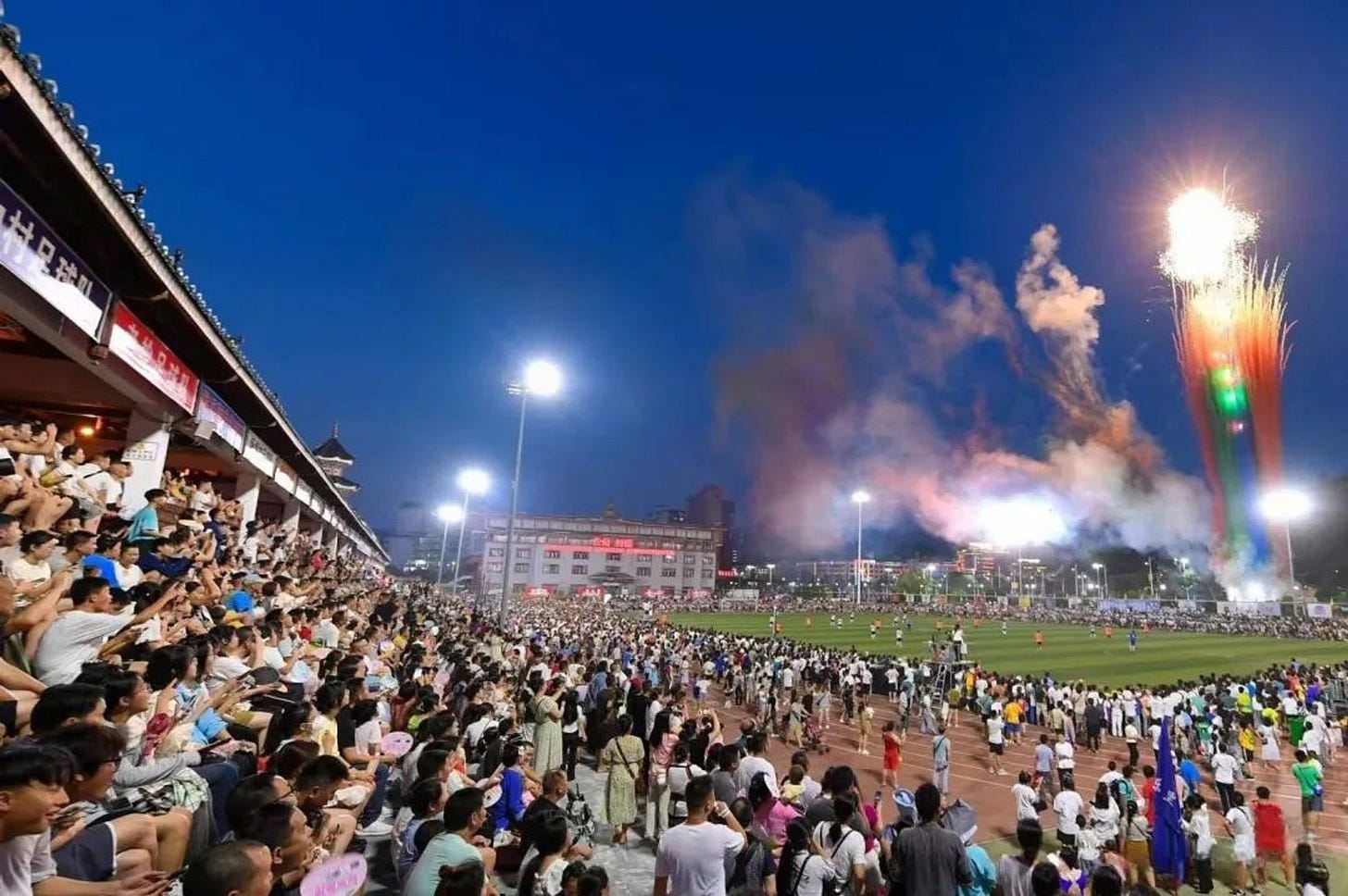
Today, among the 385,000 people in Rongjiang County, 50,000 people know how to play football and love to play football. The county football association has registered more than 1,000 players, and all 14 standard football fields are open to the public for free.
Football starts with the young ones!
Few people can remember Chejiang Er Cun. For the millions of netizens watching online, the results of the Village Super League matches are not important. The focus is on the anecdotes and discussions surrounding the matches.
In the Village Super League's "super long-range goal" video that has gone viral across the internet, there is a witty commentary line that says, "It's not that our football is not good, but that China's Messi is on a construction site, and China's C Ronaldo is driving an excavator."
This saying ridicules the national football team while raising the question in the hearts of countless Chinese: why can't a country with a population of 1.4 billion find 11 people who can play football?
From the anti-corruption campaign against match-fixing two decades ago, to the era of money-driven football ten years ago, and now with the successive downfall of 11 high-ranking officials in the Chinese Football Association (CFA), no other sport in Chinese history has received such significant investment, attention, and undergone such extensive reforms as football. Yet, despite pouring immense resources into the sport, the result has been repeated failures in international competitions time and time again.

At the same time, despite being an authentic grassroots tournament, the competitiveness of the Village Super League may not match that of professional matches, but the athletic allure showcased by the players is no less than that of the Chinese Super League (CSL). Many netizens jokingly remark that Chinese football has finally found a new direction.
Of course, while we jest, the Village Super League, as good as it is, is not the "cure" for Chinese football, nor can it replace the CSL or have villagers take the place of national team players.
The true significance of the Village Super League lies not in the competitive aspect but rather in reaffirming the importance of grassroots football. If Chinese football wants to achieve results, it cannot solely focus on the professional leagues at the pyramid's pinnacle. The fundamental steps involve expanding the fan base, increasing the population of youth football players, breaking certain rigid systems, and returning to common sense.
In other words, the reason why the Village Super League is so exciting and why villagers are willing to travel great distances to participate is that decades ago, they were all children running across the field.
“Besides the skill level, the most important thing is the act of playing football itself. Enjoying the sport of football and savoring the beautiful moments of playing."——The evening after the friendly match, Messi boarded a private plane to return to Barcelona. Prior to this, Messi conveyed these words to the Chinese youth who have a passion for football during an interview with CCTV.
Our Take
Guizhou is famous for its mountainous landscape, rich ethnic diversity, world’s most valuable liquor brand, and a stereotype of under-development. It is also Ground Zero for China’s infrastructure buildup and the campaign to eradicate poverty. According to People’s Daily, by the end of 2022, Guizhou was home to nearly half of the world's 100 tallest bridges and four of the world's 10 tallest bridges. Recently however, as local government debt in China reached an unsustainable height and became a contributing factor to the economic downturn, Guizhou is also among the regions that invite debates about the pros and cons of China’s development model.





